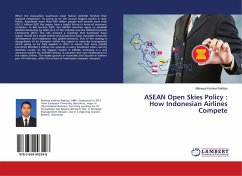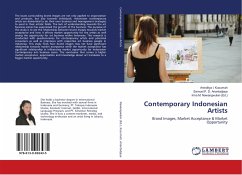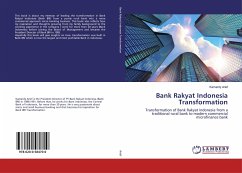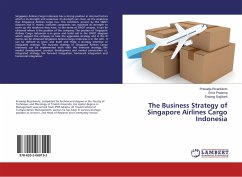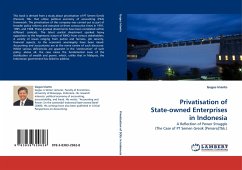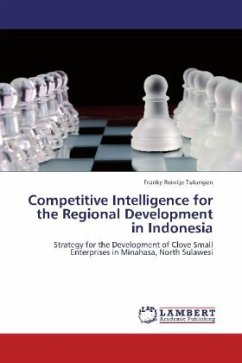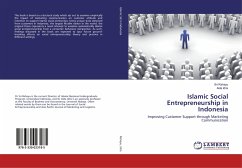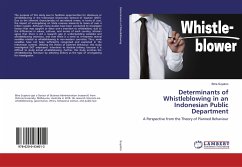
Determinants of Whistleblowing in an Indonesian Public Department
A Perspective from the Theory of Planned Behaviour
Versandkostenfrei!
Versandfertig in 6-10 Tagen
62,99 €
inkl. MwSt.

PAYBACK Punkte
31 °P sammeln!
The purpose of this study was to facilitate opportunities for disclosure or whistleblowing in the Indonesian Directorate General of Taxation (DGT). Due to the inherent characteristics of tax-related crimes, in terms of cost, the impact of wrongdoing on State revenue amounts to losses of over a trillion rupiahs. Although many studies have been conducted to investigate factors that may support or deter one's intention to whistleblow, due to the differences in values, cultures, and norms of each country, scholars agree that there is still a research gap in understanding variables and whistleblowi...
The purpose of this study was to facilitate opportunities for disclosure or whistleblowing in the Indonesian Directorate General of Taxation (DGT). Due to the inherent characteristics of tax-related crimes, in terms of cost, the impact of wrongdoing on State revenue amounts to losses of over a trillion rupiahs. Although many studies have been conducted to investigate factors that may support or deter one's intention to whistleblow, due to the differences in values, cultures, and norms of each country, scholars agree that there is still a research gap in understanding variables and whistleblowing intention, and that there is a need to re-examine several variables related to whistleblowing in non-western countries. Thus, some variables have not been sufficiently recognised and examined in the Indonesian context. Utilizing the theory of planned behaviour, this study investigated DGT employees' intentions to disclose bribery, because it is difficult to study actual whistleblowing. Further, this study enriches the whistleblowing literature by selecting bribery as the type of wrongdoing for investigation.



